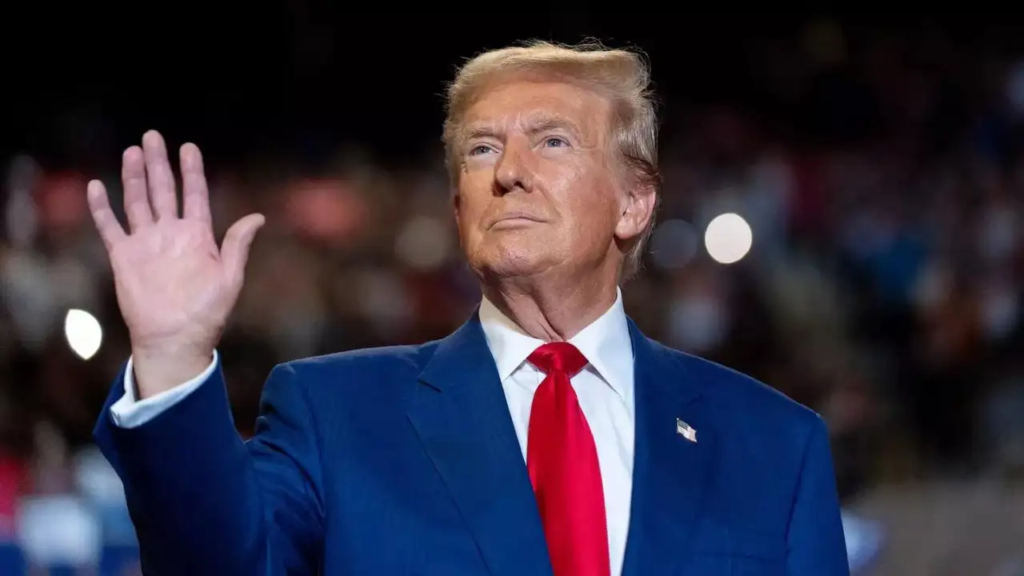Trump Administration Revokes 4000 Student Visas in First 100 Days
The Trump administration has revoked the U.S. visas of over 4,000 international students in its first 100 days, citing criminal conduct as the primary reason.

This move has sparked debate about immigration policy, student rights, and the future of international education in the U.S. Here’s a breakdown of the news, its background, and its impacts.
Background of the Visa Revocations
In early 2025, the Trump administration launched a strict immigration crackdown, targeting noncitizens with any criminal history.
The Department of Homeland Security (DHS) and Immigration and Customs Enforcement (ICE) used the Student and Exchange Visitor Information System (SEVIS) to identify international students flagged in criminal records checks.
Offenses ranged from serious crimes like assault, robbery, and trafficking to minor infractions like DUIs or dismissed charges. Many students, particularly from Asia and the Middle East, faced abrupt visa terminations, often without clear explanations or due process.
This policy aligns with President Trump’s campaign promise to prioritize national security and enforce immigration laws rigorously.
Why Is Trump Doing This?
The administration argues that revoking visas ensures public safety and upholds immigration standards. Secretary of State Marco Rubio stated, “No one’s entitled to a student visa,” emphasizing that students must focus on academics, not criminal or disruptive activities like pro-Palestinian protests.

The policy targets those with criminal records, even minor ones, to deter unlawful behavior. However, critics, including the ACLU and NAFSA, claim the revocations lack transparency and unfairly punish students for exercising free speech or facing unproven charges.
Legal challenges, with over 100 lawsuits filed, forced ICE to temporarily restore some SEVIS records, but the administration plans a new framework to continue terminations.
Impact on International Students
The visa revocations have disrupted the lives of thousands of students. Many lost access to classes, research, and jobs, with some, like a Cornell student, self-deporting to avoid legal battles.
Students report anxiety, fear of detention, and financial losses from tuition and housing costs. For example, Ohio State’s Ahwar Sultan faced visa cancellation after a pro-Palestinian protest arrest, despite no conviction.
While some statuses were restored after lawsuits, uncertainty persists, especially for those with revoked visas. NAFSA estimates 1,800 students across 280 universities were affected, with long-term consequences like lost opportunities and damaged academic records.
Impact on Students Coming to the U.S.
The policy could deter future international students from choosing U.S. universities. International students contribute $43.8 billion annually to the economy and support over 370,000 jobs, but fear of sudden visa cancellations may reduce enrollments.
Universities like Yale and UAB report disrupted programs, and institutions worry about declining revenue from higher tuition fees paid by foreign students.
The crackdown may also harm the U.S.’s reputation as a welcoming hub for global talent, pushing students toward countries like Canada or the UK. Critics warn this could weaken academic diversity and innovation in fields like STEM.
The Trump administration’s visa revocations reflect a broader immigration strategy, but legal battles and public outcry highlight the tension between security and fairness. As ICE develops new policies, the future for international students remains uncertain.


 Elon Musk Pulls Back After Trump Post Controversy
Elon Musk Pulls Back After Trump Post Controversy  Is Trump Hyping Troops on U.S. Soil to Crush LA Protests?
Is Trump Hyping Troops on U.S. Soil to Crush LA Protests?  What’s Behind the Immigrant Protests in Los Angeles?
What’s Behind the Immigrant Protests in Los Angeles?  How Elon Musk and Trump’s Bromance Turned Bitter
How Elon Musk and Trump’s Bromance Turned Bitter